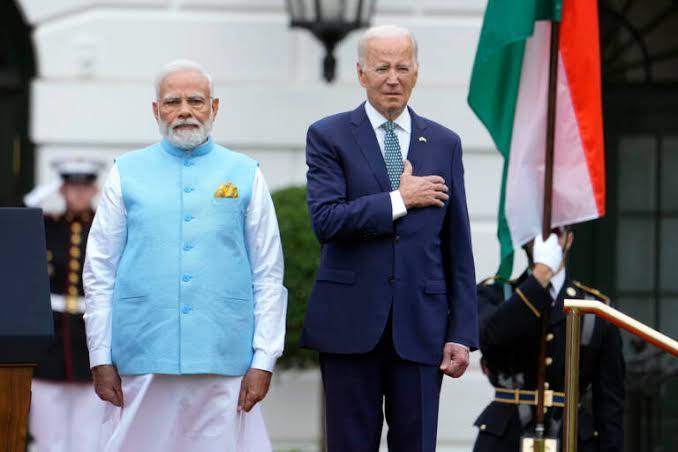India gets yet another heav blow from strategic ally US
Shares

In a diplomatic development that has garnered attention on the global stage, US Secretary of State Antony Blinken has told India to collaborate with Canada to ensure "accountability" concerning the assassination of a Sikh separatist figure. The situation escalated when Ottawa leveled allegations of Delhi's involvement in the killing, resulting in a tit-for-tat expulsion of diplomats between the two nations.
Blinken, speaking in New York during the UN General Assembly, emphasized the importance of a thorough investigation leading to accountability. He expressed hope that India would cooperate with this investigation, highlighting the seriousness with which the United States regards incidents of "transnational repression."
The backdrop of this diplomatic row revolves around the murder of Hardeep Singh Nijjar, a prominent Canadian Sikh leader, who was fatally shot in June in front of the Guru Nanak Sikh Gurdwara in Surrey, British Columbia. Nijjar had been an advocate for the Khalistan movement, which seeks an independent Sikh homeland in India's Punjab region.
Prior to his death, India had accused Nijjar of involvement in a plot to assassinate a Hindu priest in Punjab, offering a substantial bounty for his capture. Canadian Prime Minister Justin Trudeau's statement suggesting potential links between India and Nijjar's murder set the stage for the escalating tensions.
Trudeau, addressing the Canadian Parliament, underscored that any involvement by a foreign government in the killing of a Canadian citizen on Canadian soil was an unacceptable violation of sovereignty. Canada's Foreign Affairs Minister, Mélanie Joly, confirmed the expulsion of a "key Indian diplomat" and stressed the expectation that India would fully collaborate in uncovering the truth behind this incident.
Blinken's call for cooperation emphasizes the broader significance of maintaining the integrity of the international system and deterring nations from engaging in acts that could be construed as transnational repression. The evolving situation will undoubtedly have ramifications for diplomatic relations between these nations in the coming days.
